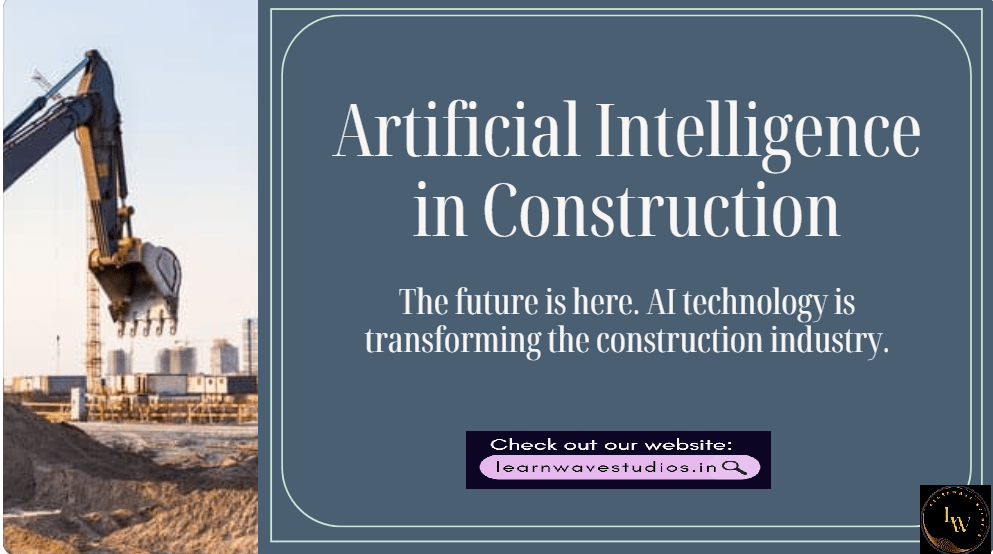Revolutionizing : The Impact of AI Technologies in Construction
The construction industry is undergoing a transformative evolution, propelled by the adoption of cutting-edge artificial intelligence (AI) technologies. From streamlining project management to enhancing safety measures, AI is revolutionizing traditional construction methods, ushering in a new era of efficiency and innovation. In this blog post, we delve into how the construction industry is embracing AI technologies, along with precise examples that illustrate its profound impact.

Enhanced Project Planning and Management: AI-powered predictive analytics and machine learning algorithms are being leveraged to optimize project planning and management processes. By analyzing historical data, AI models can forecast potential project delays, allocate resources efficiently, and streamline scheduling, ultimately enhancing project delivery timelines and minimizing cost overruns.| AI Technologies in Construction
Example: Construction companies are utilizing AI-powered project management platforms that incorporate predictive analytics to identify potential bottlenecks in construction schedules, enabling proactive mitigation strategies and ensuring timely project completion.
2. Autonomous Equipment and Robotics: AI-driven autonomous construction equipment and robotics are redefining the way tasks are executed on construction sites. From autonomous cranes and bulldozers to robotic bricklayers, these technologies are improving operational efficiency, reducing labor requirements, and enhancing overall safety on construction sites. | AI Technologies in Construction
Example: The utilization of autonomous drones equipped with AI-enabled imaging and surveying capabilities is revolutionizing site inspections and surveying tasks, providing real-time data insights that facilitate informed decision-making and progress tracking.
3. Safety and Risk Management: AI technologies are being harnessed to enhance safety protocols and risk management practices in the construction industry. Machine learning algorithms can analyze historical safety data to identify potential hazards, predict potential safety incidents, and recommend proactive measures to mitigate risks. | AI Technologies in Construction
Example: AI-powered wearable devices equipped with biometric sensors are enabling real-time monitoring of construction workers’ vital signs, detecting potential health risks, and issuing alerts in the event of emergencies, thereby elevating safety standards on construction sites.
4. Optimized Building Design and Construction: AI-enabled generative design tools and digital twins are empowering architects and engineers to create optimized building designs, simulate construction scenarios, and identify potential structural weaknesses, leading to more resilient and sustainable structures.| AI Technologies in Construction
Example: The implementation of AI-driven generative design tools allows architects to explore countless design permutations in a fraction of the time it would traditionally require, enabling the creation of highly efficient and visually stunning architectural designs that align with environmental and sustainability standards.
The integration of AI technologies into the construction industry is catalyzing a paradigm shift, propelling the sector towards unprecedented levels of efficiency, safety, and innovation. From optimized project management and autonomous equipment to enhanced safety protocols and sustainable building designs, AI is reshaping the way construction projects are conceptualized, planned, and executed. As the construction industry continues to embrace the potential of AI, it stands poised to unlock limitless opportunities for advancement and excellence, propelling the sector into a future defined by ingenuity and progress.

